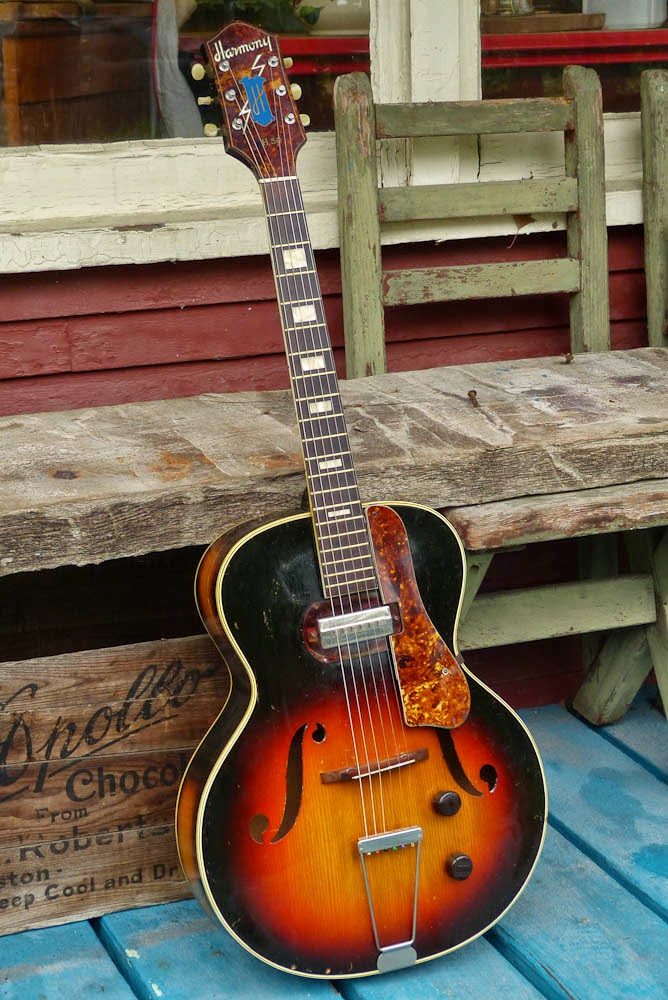c.1950 Harmony H-50 Archtop Electric Guitar
Oh, man... full ES-125-style hollowbody but sporting a neck-position Gibson P-13 pickup? I'm in love. Take your P-90s and shove!
This is a customer's guitar that got lost in limbo for a while (the P-13 arrived dead and had to be revived by The Supreme Mr. Novak) even though all the structural work had been finished. That included... neck reset, seam repairs, fret level/dress, new wiring harness and jack, new bridge adjusters and bridge intonation work... all that sort of stuff. It's all been done and as expected it plays happily and sounds like the bee's knees.
I think something like this guitar would totally suit jump blues, jazz, swing, and warmer-sounding rockabilly. It's a bit of a thumpy-sounding guitar but if you have a cleaner, brighter amp (read: Fender) you will love the depth and firecracker bite of the P-13 in the neck position.
I think something like this guitar would totally suit jump blues, jazz, swing, and warmer-sounding rockabilly. It's a bit of a thumpy-sounding guitar but if you have a cleaner, brighter amp (read: Fender) you will love the depth and firecracker bite of the P-13 in the neck position.
Harmony only made this model for a few short years. I've ticked in "c.1950" because that's right in the middle of the production timeline and fits the styling. Unfortunately there's no convenient, super-obvious Harmony date stamp inside to clarify the exact year, however.
On this one the top is laminate (not solid) spruce while the back and sides are solid maple. The bridge and board are both rosewood and the neck is maple, too, with some faux-flame painted-on stuff on its rear.
Ah, Harmony, you melt my heart with your super-stylish celluloid headstock veneers.
Brass frets, lightly-radiused board, cream binding and side dots, and faux-pearl... we're definitely heading into the 50s, here. The neck came in with a light warp which was eliminated via the fret level/dress, thankfully.
The Gibson P-13 pickup is one of those cool early 40s ones with the "parapet" poles.
Harmony-style adjustable bridges tend to work "upside-down" from normal on the adjuster wheels and this one was no different. I replaced the original adjusters because they were simply too mucked-up for use. These smallish steel mandolin-style adjusters are a lot better.
Simple tailpiece and cool bakelite "radio knobs." The huge-potted original wiring harness was totally shot so this instrument got a whole new one with Switchcraft jack, lightweight pots, old-style wire, and a new ground to the tailpiece.
The Kluson tuners are getting a bit world-weary but still function fine.
This neck joint was badly mistreated in the past and the big old ugly crack repairs to the sides prove that... my work included shoring up old crack repairs and giving it a proper, definitive neck reset. It should be stable in service for quite a while, now.
Big, fancy binding recalls Gretsch style cues...














Comments